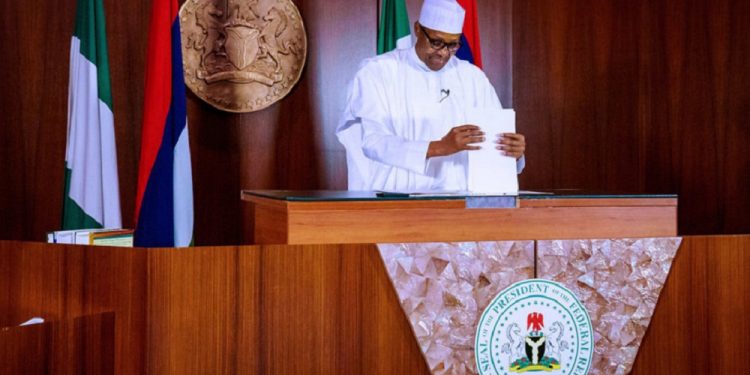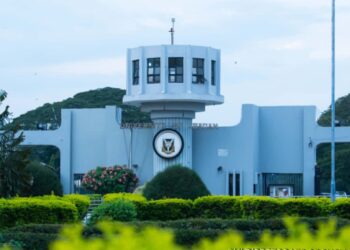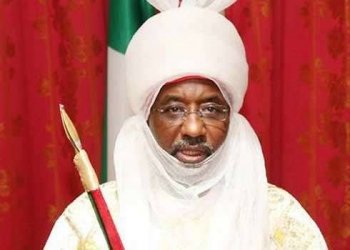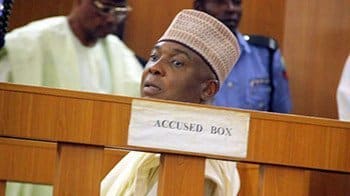President Muhammadu Buhari presented a total budget proposal of N20.51 trillion to the National Assembly for the 2023 fiscal year on Friday, October 8, 2022.
Tagged Budget of Fiscal Consolidation and Transition, the proposal came with a deficit of N10.78 trillion, which represents 4.78 per cent of the estimated Gross Domestic Product (GDP) and is above the three per cent threshold set by the Fiscal Responsibility Act 2007.
The budget, which includes N2.42 trillion spending by Government-Owned Enterprises also comprises Statutory Transfers of N744.11 billion; Non-debt Recurrent Costs of N8.27 trillion and Personnel Costs of N4.99 trillion.
The budget also included N854.8 billion in Pensions, Gratuities, and Retirees’ Benefits, N1.11 trillion in overheads, N5.35 trillion in capital Expenditures, including the capital component of Statutory Transfers, N6.31 trillion in debt service, and N247.73 billion in a sinking fund to retire certain maturing bonds.
According to the President, the deficit will be financed by “new borrowings totalling N8.80 trillion, N206.18 billion from Privatisation Proceeds and N1.77 trillion drawdowns on bilateral/multilateral loans secured for specific development projects/programmes.”
The budget as proposed is based on key parameters and assumptions, which include an oil price benchmark of $70 per barrel; a daily oil production estimate of 1.69 million barrels (inclusive of Condensates of 300,000 to 400,000 barrels per day); an exchange rate of N435.57 per US Dollar; and projected GDP growth rate of 3.75 percent and 17.16 percent inflation rate.
Buhari informed lawmakers that based on these fiscal assumptions and parameters, total federally collectable revenue is estimated at N16.87 trillion in 2023. He also said the total federally distributable revenue is estimated at N11.09 trillion in 2023, while the total revenue available to fund the 2023 Federal Budget is estimated at N9.73 trillion.
“This includes the revenues of 63 Government-Owned Enterprises,” the President added. According to Buhari’s presentation, “oil revenue is projected at N1.92 trillion, non-oil taxes are estimated at N2.43 trillion, and FGN independent revenues are projected to be N2.21 trillion. Other revenues total N762 billion while the retained revenues of the GOEs amount to N2.42 trillion.”
The President explained the reasons for the past borrowings: “Over time, we have resorted to borrowing to finance our fiscal gaps. We have been using loans to finance critical development projects and programmes aimed at further improving our economic environment and enhancing the delivery of public services to our people.
“As you are aware, we have witnessed two economic recessions within the period of this Administration. A direct result of this is a significant decline in our revenue-generating capacity.
“In both cases, we had to spend our way out of recession, resulting in higher public debt and debt service. It is unlikely that our recovery from each of the two recessions would have been as fast without the sustained government expenditure funded by debt.”
According to him, the budget would be accompanied by Finance Bills. He pointed out that “to support the realisation of fiscal projections, current tax and fiscal laws/regulations are being reviewed to produce a draft Finance Bill 2022.”
He added: “It is our intention that once ongoing consultations are completed, the Finance Bill 2022 would be submitted to the National Assembly to be considered alongside the 2023 Appropriation Bill.”
The President explained the theme and priorities of the 2023 budget. He stated that the 2023 Budget proposal, being the eighth and final budget of his Administration, “reflects the serious challenges currently facing our country, key reforms necessary to address them, and imperatives to achieve higher, more inclusive, diversified and sustainable growth.”
He said, “it is equally noteworthy that the Finance Bill will be considered alongside the 2023 Appropriation Bill as well as the fact that the budget of Government Owned Enterprises is integrated to promote transparency.”
Uwaleke added: “I think the oil price benchmark of $70 is conservative in line with budget principles. I also think the oil production benchmark of 1.69mbpd is realistic given the assurance by the President that the NNPC Limited is doing something to curb oil theft and pipeline vandalism.
“I also think the fiscal deficit of over N10 trillion can be trimmed especially by pruning down the over N1 trillion overhead costs.”









